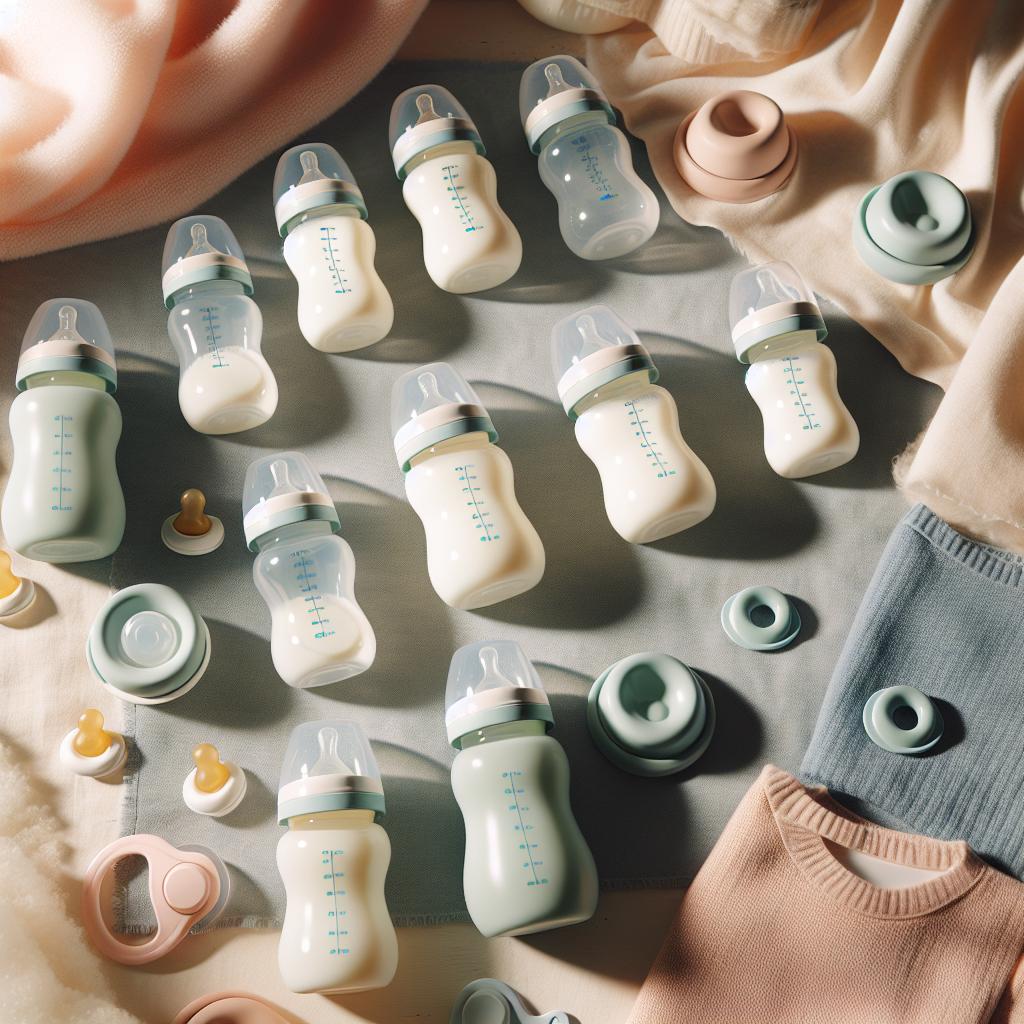Understanding ‘Baby Hates Bottle’ Syndrome
There’s nothing more frustrating and worrisome for a new parent than when their baby refuses to take a bottle. It’s a common problem that many parents face and it’s often referred to as the ‘baby hates bottle’ syndrome. If your little one is showing signs of bottle dislike or outright bottle rejection, don’t panic. There are methods and strategies to help make bottle-feeding a more pleasant experience for both you and your infant.
Why Does My Baby Refuse the Bottle?
Bottle refusal can happen for numerous reasons. Some of the common ones include:
– Baby is used to breastfeeding and finds it difficult to switch to a bottle.
– The bottle nipple is not the right size or type for the baby’s liking.
– The baby is not hungry at the time of feeding.
Understanding the reason behind your baby’s bottle rejection is the first step towards solving the issue. You may find these detailed explanations on why a baby refuses a bottle helpful in your quest for answers.
Strategies to Ease Bottle Rejection
Once you’ve identified the potential reasons for your baby’s bottle dislike, you can begin implementing strategies to help your baby accept the bottle.
– Use the right bottle: It’s essential to find a bottle that is most similar to a mother’s breast. This can help make the transition from breast to bottle easier for your baby. Check out these easiest bottles for breastfed babies for some suggestions.
– Switch up the feeding routine: Try bottle feeding when your baby is not extremely hungry or overly tired. A calm and patient approach can do wonders to alleviate bottle refusal.
– Experiment with different nipples: Every baby is different and may have a preference for a specific type of nipple. Experiment with different nipple sizes and flows to find one that your baby is comfortable with.
– Try different temperatures: Some babies prefer their milk at a specific temperature. Experiment with warmer or cooler milk to see if this makes a difference in your baby’s willingness to accept the bottle.
More strategies such as these are discussed in-depth in this article about what to do when your baby refuses a bottle.
Safe and Comfortable Bottle Feeding
Ensuring your baby’s comfort and safety during bottle feeding is crucial. Using safe bottles for breast milk and adapting calming techniques for bottle feeding can significantly improve your baby’s feeding experience.
Remember, it might take some time for your baby to adjust to bottle feeding. Don’t be disheartened if progress is slow. Patience, perseverance, and a little bit of trial and error can go a long way in resolving ‘baby hates bottle’ syndrome.
The Importance of Consistency and Persistence
A key aspect that parents must remember while trying to help their child adapt to bottle feeding is the importance of consistency and persistence. Keep in mind that babies are used to a certain feeding routine, and introducing a new routine could disrupt their comfort zone. Consequently, you might face resistance initially, but with consistent effort and gentle guidance, this issue can be overcome.
Here are a few suggestions for maintaining consistency:
– Stick to a routine: Try and feed your baby at the same times each day. Babies thrive on routine, and soon this could become a comfortable part of their daily schedule.
– Consistent bottle use: Once you find a bottle and nipple that your baby prefers, stick to it instead of constantly switching to new ones.
– Persistent attempts: If your baby rejects the bottle, wait for a while and attempt again. Don’t give up at the first sign of refusal.
Patience is the key here. This article on persistent attempts when the baby refuses the bottle provides more guidance on this approach.
Getting Professional Help
Sometimes, despite trying all strategies, the baby continues to refuse the bottle. In such cases, professional help from a lactation consultant or pediatrician may be needed. It might be possible that your baby has an oral abnormality making it difficult for them to bottle-feed, or perhaps they have developed an aversion towards bottle feeding due to past experiences. A lactation consultant can help you understand the root cause of your baby refusing the bottle and provide a concrete solution.
Empathy and Understanding: The Key to Bottle Feeding
Finally, remember, empathy and understanding are crucial. This phase can be frustrating for both you and your baby, but it’s important to understand that the change is possibly more challenging for your little one. At all times, try to keep your baby comfortable, relaxed, and loved during feeding sessions. A positive bottle-feeding environment can greatly enhance a baby’s willingness to take the bottle.
Furthermore, keep an eye on your baby’s overall mood, health, and growth. If your baby is otherwise healthy, growing well, and meeting developmental milestones, occasional bottle refusal should not panic you.
Here is an excellent resource on empathy and understanding, in case your breastfed baby won’t take a bottle.
Remember, your aim is not just to ‘win’ the battle of bottle feeding but to ensure that your baby’s nourishment and growth are not compromised. Approach it with love, patience, and understanding, and you’re sure to find a solution that works best for your family.






